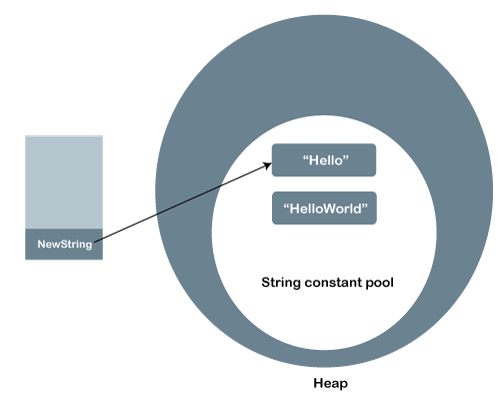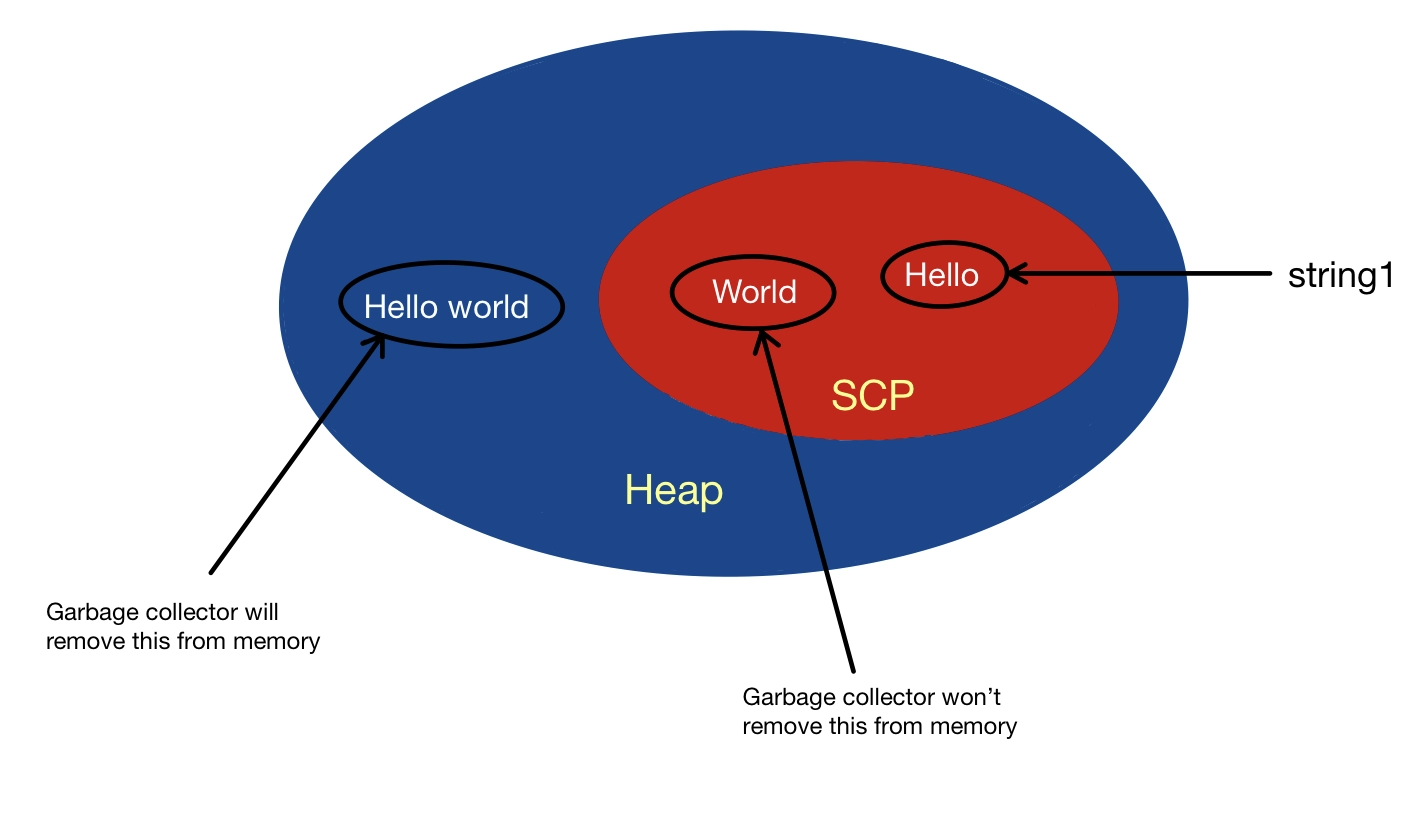Why Are Strings Immutable in Java? In-depth Evaluation for Designers
Why Are Strings Immutable in Java? In-depth Evaluation for Designers
Blog Article
Checking Out the Benefits of Immutable Strings in Modern Shows Paradigms
In the realm of modern programs standards, the principle of unalterable strings stands as a foundation of durable software advancement. By embracing immutable strings, programmers can make certain enhanced data honesty, enhanced thread security, streamlined debugging procedures, boosted security measures, and reliable efficiency optimization.
Improved Information Integrity

By avoiding the alteration of string items, immutability removes the danger of unintended modifications to the information they hold. This not just improves the safety and security of the information however additionally boosts the reliability of the code that counts on these strings.
Immutability additionally supports safer multithreading environments, as simultaneous accessibility to unalterable strings does not position the risk of information corruption with synchronised modifications. This residential or commercial property simplifies the procedure of dealing with strings in identical programming scenarios.
In significance, immutability acts as a protective guard around the information kept within strings, improving their integrity by making sure that once specified, their worths remain unmodified throughout the program's implementation.

Improved String Safety
Immutable strings boost the thread safety of programs by ensuring that when a string object is produced, its value can not be modified. This residential property eliminates the threat of simultaneous threads trying to modify the very same string simultaneously, which can lead to information corruption or irregular states in the program - Why are strings immutable in Java?. In a multi-threaded atmosphere, where numerous threads access and adjust data simultaneously, the immutability of strings gives a degree of safety and security by assuring that the information continues to be unmodified throughout its lifecycle
Simplified Debugging Processes
Offered the enhanced string safety facilitated by unalterable strings, a significant benefit develops in the world of simplified debugging procedures. Unalterable strings, as soon as produced, can not be modified, making it less complicated to map the flow of data and determine the source of insects in a program. This immutability makes certain that strings continue to be regular throughout the execution of the program, decreasing the possibility of unexpected modifications that could cause errors.
When debugging with mutable strings, designers typically come across issues where a string's value is changed inadvertently, making it testing to pinpoint the root reason of an insect. Nonetheless, with unalterable strings, the information stays unchanged, enabling programmers to focus on assessing the real reasoning of the code rather hop over to here than tracking down where and when a string was modified incorrectly.
Furthermore, immutable strings simplify the debugging procedure by allowing easier recreation of bugs. Since immutable strings do not change state, designers can recreate and research pests a lot more successfully, causing quicker identification and resolution of problems within the codebase. This structured debugging workflow inevitably adds to greater software application quality and enhanced total development performance.

Enhanced Security Procedures
Enhancing information defense and strengthening system stability, the usage of unalterable strings in software program applications contributes considerably to enhanced protection measures. Unalterable strings likewise play an important function in preventing common safety and security vulnerabilities such as barrier overflows and look at here now SQL shot assaults, as attempts to control string information at runtime are naturally limited.
Additionally, the immutability of strings improves the predictability of program behavior, making it easier to confirm inputs and prevent unanticipated modifications that might compromise protection. This predictability simplifies the process of auditing and confirming code, allowing developers to identify possible protection technicalities a lot more efficiently. On the whole, including unalterable strings into software application development methods not only boosts the toughness and integrity of applications yet additionally reinforces their resilience against safety and security hazards.
Efficient Efficiency Optimization
Structure upon the foundation of boosted protection steps accomplished with the application of unalterable strings, an essential facet to think about in software application development is reliable performance optimization. When managing mutable strings, procedures like concatenation or substring development commonly result in the creation of new string things, resulting in memory overhead and enhanced processing time. Nonetheless, with immutable strings, these procedures can be enhanced to boost efficiency. By enabling strings to remain stable and continuous, immutable strings help with far better memory management and caching chances, inevitably boosting the general efficiency of the software program.
Given that unalterable strings can not be customized when developed, they can be shared throughout threads without the threat of unexpected adjustments, lowering the need for synchronization systems and boosting concurrency. Unalterable strings simplify debugging processes as designers can rely this page on that a string's worth will continue to be consistent throughout the program's execution, eliminating potential errors triggered by mutable state changes.
Verdict
To conclude, the advantages of making use of unalterable strings in modern-day programming paradigms can not be overstated. Boosted data integrity, enhanced thread security, simplified debugging procedures, enhanced safety procedures, and efficient efficiency optimization all add to the general effectiveness of programs jobs. By incorporating unalterable strings right into programming practices, programmers can benefit from a much more trustworthy and durable codebase.
Immutability, a crucial function of strings in programs languages such as Java and Python, ensures that when a string things is developed, it can not be altered or changed.Immutable strings improve the string safety and security of programs by making certain that when a string item is developed, its value can not be modified. Immutable strings additionally play a crucial function in protecting against usual safety vulnerabilities such as barrier overflows and SQL injection assaults, as attempts to manipulate string information at runtime are naturally restricted.
By allowing strings to continue to be constant and stable, immutable strings facilitate better memory administration and caching chances, eventually boosting the overall efficiency of the software application.
Immutable strings streamline debugging processes as designers can rely on that a string's worth will certainly continue to be constant throughout the program's execution, eliminating prospective errors created by mutable state modifications.
Report this page